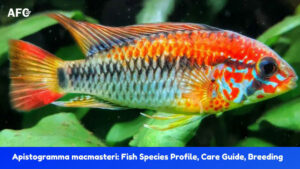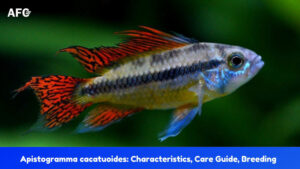The feisty Siamese Fighting fish, also known as Betta fish, can sometimes be a shy species that like to hide under rocks and inside caves.
Some may argue that they are cautious creatures who are planning their next attack in stealth mode. And yet, other aquarists may say that an unusually timid Betta is distressed or feeling threatened.
With so many possibilities, it doesn’t come as a surprise that many concerned pet owners are often left wondering, “Why is my Betta fish hiding?” Fortunately, a few signs may help determine if a hiding Betta is a cause for concern. Read on to find out what they are.
Is It Normal For A Betta Fish To Hide?
Betta fish often come up to the surface to breathe in atmospheric air, so it is unlikely that the fish will hide at the bottom for long hours. At the same time, even perfectly normal Betta fish may hide in the corner of the tank or behind aquarium decor to have some time to themselves.
The key in differentiating whether the hiding behavior is normal or not is to monitor their day-to-day activities.
For instance, notice whether your Betta only started hiding after you brought in new tank mates or shifted its home. Or perhaps, it always had a shy personality, but lately, it has been hiding all day.
And if you suspect that your Betta has indeed been acting strange, consider making some changes around the fish tank to encourage the fish to come out.
Why Does My Betta Fish Hide? (The Potential Causes)
Poor Water Quality
Usually, a Betta will seek refuge behind a plant or inside the caves designated for hiding purposes. However, if you find your Betta squeezed behind the filter unit, the problem may lie in the tank’s water parameters.
That said, clean water is usually concentrated around the filter, and the Betta may be lurking here to avoid the poor water conditions in the rest of the tank. Or perhaps, the water is too cold for this tropical fish, which feels more comfortable behind heater units.
What To Do
For starters, you need a water testing kit to check the water parameters and diagnose the problem. Ideally, the nitrite and ammonia levels should be at zero ppm.
And if you find a high quantity of these contaminants in the water, you should consider changing the tank water more frequently and investing in a better filtration system. If not, your fish may succumb to ammonia or nitrite poisoning, which are most identifiable by red or black spots around the body.
As for water temperature, ensure that it stays between 75 and 80 degrees F.
LED Lights Too Bright
Betta fish are native to the paddy fields, ponds, marshes, and other murky waters of Southeast Asia. And as any fishkeeper knows, you must replicate its natural surroundings in all aspects, including the lighting conditions.
That said, the lighting in the tank may be too high for your Betta, which usually thrives in a dim environment shrouded by mud and vegetation.
What To Do
Try lowering the brightness and notice if the Betta fish comes out of its hiding place. Alternatively, you can place floating plants to block out the light. However, be careful not to block the entire surface as Betta fish often come up to breathe in surface air.
Filter Current Too Strong
Betta fish are lazy and bad swimmers that don’t particularly enjoy swimming against the current, even in the wild. That said, a Betta hovering around the bottom of the tank or stationed in dead spots, particularly behind aquarium decor, could be avoiding an aggressive current.
What To Do:
The quickest solution is to turn down the settings but that may compromise the filter’s cleaning ability. So, instead, you may invest in a new adjustable filter or a pre-filter sponge that you can attach to the old system.
You may want to know: Is The Filter Too Strong for Betta? (3 Ways to Fix It)
Limited Hiding Spaces
In the wild, Bettas are usually found in waters with plenty of hiding spaces and visual barriers to keep them hidden from predators. And while Bettas do enjoy swimming around freely from time to time, a tank full of hiding holes may help them feel more secure.
What To Do
Consider adding rocks and plants, such as Java fern and Betta bulbs to the tank. Not only do aquarium decor provide new hideaways for your Betta, but they also serve an aesthetic purpose while controlling the filter current.
Is It A New Tank?
Not just Bettas – any fish may show signs of skittishness when you first introduce them to a new tank. While some curious fish may instantly feel at home and happily explore their surroundings, the notoriously cautious Betta may take time to fit in.
What To Do
All you can do is wait for your Betta to get acquainted with its new environment and come out of hiding when it feels ready. In the meantime, keep checking the tank parameters and maintain optimal water conditions to allow the Betta to feel at home as soon as possible.
Injury Or Sickness
Bettas in the wild often attempt to camouflage themselves behind vegetation and among murky waters to stay hidden from predators. This survival instinct kicks in especially when they are injured or suffering from sickness – and therefore, ill-equipped to defend themselves.
What To Do
A Betta that is sick or injured will often refrain from eating and show other signs of distress, such as discoloration and lethargy.
In case of any visible injuries, add some API stress coat to help with the pain. For illnesses, you first have to diagnose the disease and follow the treatment accordingly.
Final Thoughts
Perhaps you have just introduced your Betta to its new home or tankmates.
That said, a hiding Betta may simply be cautious about the changes in its life. Moreover, Bettas are not the most social fish and tend to attack others of their own kind – whether a male or a female Betta.
However, if your Betta has lost its appetite or appears unusually lethargic, something fishier may be going on. So, don’t forget to check the tank parameters daily and keep a close watch on your pet.
Indeed, there’s no other way to know whether it is hiding from danger or playing a game of hide-and-seek!





